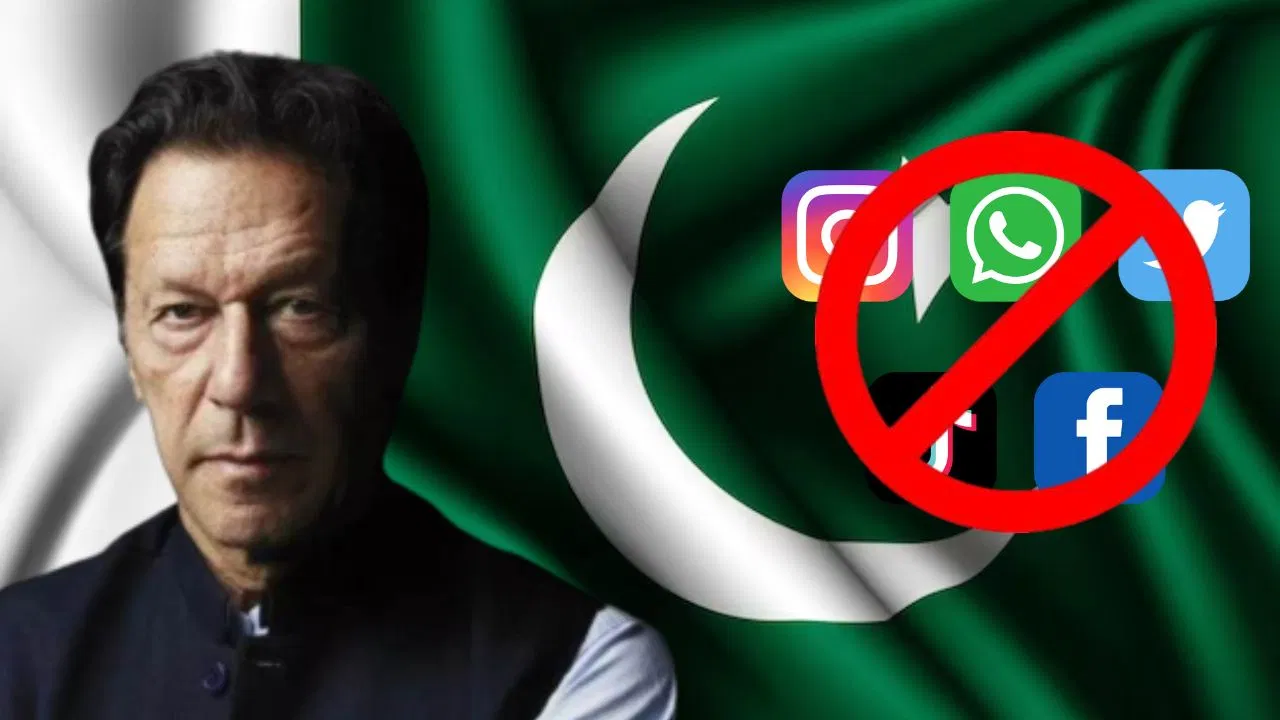Masood Ahmed Khan
The nationwide disruption of social media platforms during the PTI’s virtual fundraiser raises serious concerns about democratic freedoms and online censorship in Pakistan. Targeting specific platforms at the exact time of a major opposition political event showcases a blatant attempt to stifle dissent and control public discourse.
Precedent and Pattern: This incident is not isolated. Similar shutdowns occurred during previous PTI events, suggesting a systematic pattern of suppressing political activity online. Netblocks’ comparison to Venezuela highlights the severity of this practice, aligning Pakistan with regimes notorious for curbing online freedoms.
Lack of Transparency and Accountability: The PTA’s denial of involvement underscores the lack of transparency surrounding internet shutdowns in Pakistan. Independent verification and accountability mechanisms are crucial to prevent misuse of power and safeguard online expression.
Global Disrepute and Economic Impact: Such actions damage Pakistan’s international image and reputation as a democratic state. Additionally, disrupting major online events hinders economic activity and innovation, further harming the country’s prospects.
Potential Legal Ramifications: International human rights law guarantees the right to freedom of expression, including online access. Pakistan’s continued internet shutdowns could face legal challenges and international condemnation.
Alternative Solutions: Addressing underlying political tensions and fostering open dialogue are far more effective solutions than resorting to censorship. Engaging with opposition parties and addressing public concerns constructively should be the core objective, not silencing them via digital blockades.
Further Investigation and Action Required: This incident necessitates a thorough investigation into the decision-making behind the internet shutdown, including a clear explanation from the PTA and potential accountability measures. Additionally, advocating for robust legal frameworks and independent oversight mechanisms to prevent future abuses of power is crucial to ensuring online freedom and protecting democratic rights in Pakistan.
Furthermore, the internet shutdown during the PTI’s fundraiser is a worrying indicator of growing censorship and suppression of dissent in Pakistan. This trend demands immediate attention and concerted efforts to protect democratic freedoms and promote open communication in the digital age.
Critical Evaluation:
The intentional disruption of social media platforms during the PTI’s virtual fundraiser presents a multifaceted assault on Pakistan’s political landscape, digital rights, and fundamental freedoms. To truly grasp the gravity of this act, we must delve into each affected domain.
Politically, this episode reeks of desperation and authoritarianism. Targeting an opposition event with such blatant censorship exposes a fear of open critique and a desire to control the narrative. It echoes tactics witnessed in countries with a history of stifling dissent, raising alarming questions about the erosion of democratic spaces in Pakistan. Moreover, the timing of the shutdown, coinciding with a crucial fundraising event, suggests a deliberate attempt to cripple the PTI’s political operations and silence its message.
Digitally, this incident exemplifies a blatant disregard for online freedoms. The Internet should be a platform for open exchange of ideas, not a tool for manipulation and control. By selectively limiting access to specific platforms during a high-profile political event, the authorities essentially create a digital blackout, hindering not only the party’s outreach but also the public’s right to access information and engage in discourse. This violation of online expression sets a dangerous precedent, paving the way for further restrictions and potentially chilling online activism and dissent.
Furthermore, the fundamental rights to freedom of association and assembly are compromised by such actions. By disrupting virtual interactions, the authorities essentially curtail the ability of individuals to come together and voice their opinions, even if it’s online. This stifles political engagement and undermines the very essence of a democratic society, where peaceful assembly and expression are cornerstones.
Beyond the immediate political implications, this shutdown casts a dark shadow on Pakistan’s economic and international standing. The perception of Pakistan as a nation that undermines digital freedoms and stifles online dissent can deter foreign investment, hinder technological progress, and damage the country’s reputation as a potential partner in the global digital economy.
Legally, Pakistan’s actions risk violating international human rights obligations. The Universal Declaration of Human Rights emphasizes the right to freedom of expression, including online access and expression. Additionally, the International Covenant on Civil and Political Rights recognizes the right to peaceful assembly and association. Continued internet shutdowns, particularly targeting political events, may expose Pakistan to international legal scrutiny and censure.
Ultimately, the solution lies in upholding democratic principles and fostering robust civil liberties. Instead of resorting to digital barricades, the authorities must address political tensions through open dialogue and respect for diverse viewpoints. Strengthening legal frameworks to safeguard online freedoms and establishing independent oversight mechanisms are crucial steps towards ensuring a truly free and open digital sphere.
This incident is not merely an isolated episode; it’s a symptom of a larger struggle for democratic values in Pakistan. The digital spaces must remain open for vibrant political discourse, free expression, and peaceful assembly. By standing up against this blatant attempt at censorship and advocating for online freedom, the Pakistani people can reclaim their democratic rights and pave the way for a more open and inclusive digital future.
The internet shutdown during the PTI’s fundraiser is a multifaceted issue with far-reaching consequences. It transcends political rivalries and delves into the very fabric of democracy, digital rights, and fundamental freedoms. Addressing this incident requires a comprehensive approach that tackles the political motives, the digital implications, and the human rights violations involved. Only then can Pakistan truly ensure a free, open, and democratic society in the digital age.
In conclusion, the internet shutdown during the PTI fundraiser is a stark reminder of the vulnerability of democratic freedoms in the digital age. It demands immediate action to protect fundamental rights, promote transparent governance, and ensure that the Internet remains a space for free expression and open communication in Pakistan. Only through concerted efforts can the country move towards a future where online platforms empower citizens and strengthen democratic processes, not silence dissent and stifle political engagement.
Please, subscribe to the YouTube channel of republicpolicy.com

















































